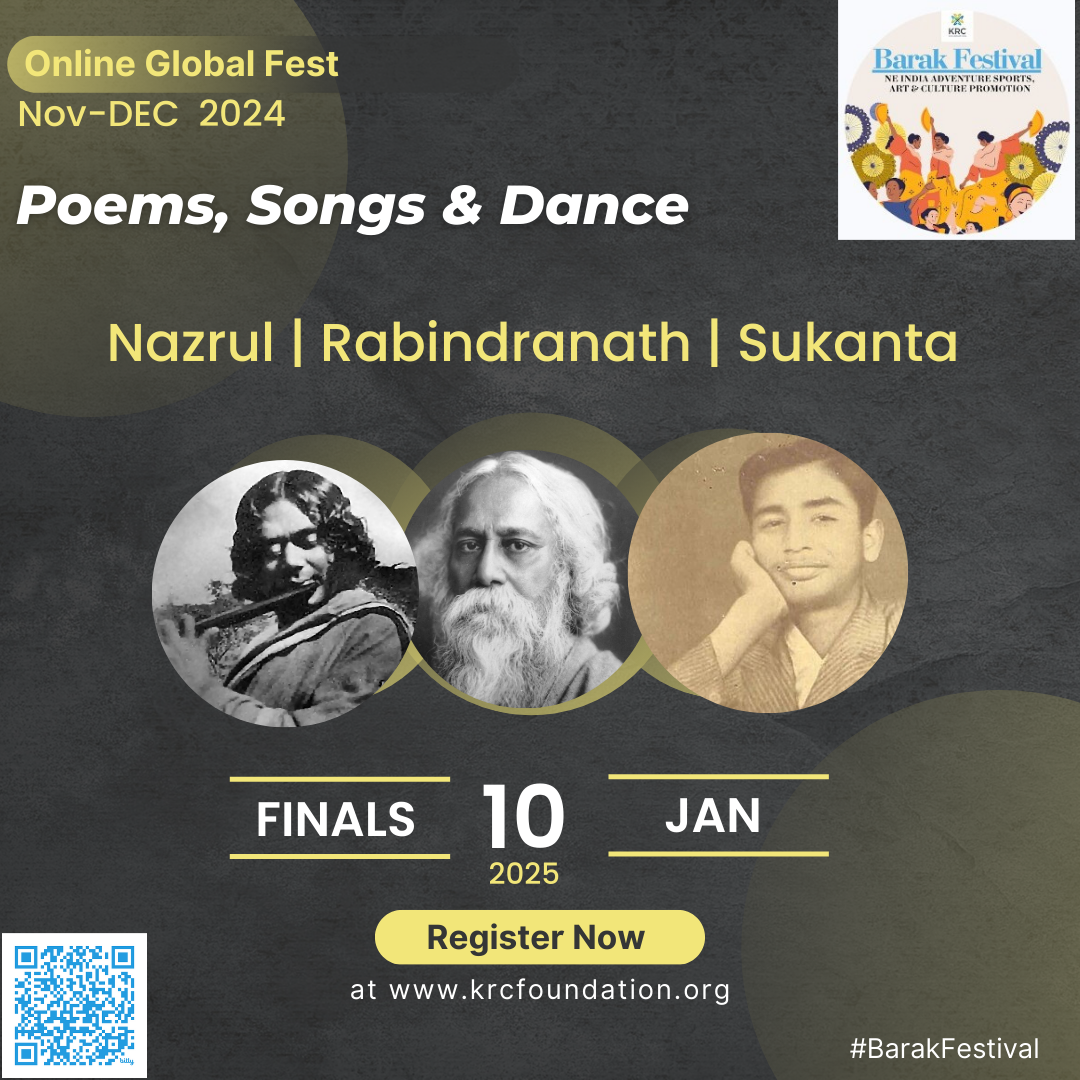Tagore, often referred to as the ‘Messenger of the East’, used his platform to advocate for Asian spirituality amidst a backdrop of global turmoil, including the onset of World War I. His extensive travels took him across China, Japan, and America, where he tirelessly promoted the ideals of unity and cultural exchange
 KRC TIMES Desk
KRC TIMES Desk

Professor Rashmi Bhardwaj & Professor Madan Mohan Goel
The global citizens of today deserve to know the life and contributions of world poet Noble Laureate Rabindranath Tagore on the occasion of his 163rd birth anniversary and hence this tribute. Tagore, an institution in itself, championed the ideals of ‘spiritual-moral Asianism’, a philosophy that continues to resonate throughout Asia and beyond. In 1913, he made history by becoming the first Asian to be awarded the Nobel Prize in Literature for his collection of poetry, “Gitanjali”, which beautifully explored the mystical relationship between the soul and the divine.
Tagore, often referred to as the ‘Messenger of the East’, used his platform to advocate for Asian spirituality amidst a backdrop of global turmoil, including the onset of World War I. His extensive travels took him across China, Japan, and America, where he tirelessly promoted the ideals of unity and cultural exchange. His efforts culminated in the establishment of Visva Bharati in 1921, a pioneering institute dedicated to Asian culture and education.
A true ambassador of globalization, Tagore emphasized the concept of ‘Vasudhaiva Kutumbakam’ (the world is one family), a principle that remains pertinent in today’s era of global interconnectedness. His encounters with influential figures such as Einstein, Shaw, Stalin, and Mao underscored his status as one of India’s most revered intellectuals, alongside Mahatma Gandhi.
Tagore’s literary prowess transcended borders, with his works translated into numerous languages worldwide. His magnum opus, “Gitanjali”, continues to inspire readers with its timeless verses and profound spiritual insights. Additionally, his novel “Gora” stands as a classic portrayal of the clash between Western and Indian cultures.
Beyond his literary achievements, Tagore’s educational vision was realized in the serene surroundings of Shantiniketan, where he envisioned a holistic approach to learning in harmony with nature.
His commitment to social reform and his steadfast support for India’s independence movement further solidified his legacy as a multifaceted genius and a champion of humanity.
Tagore’s keen understanding of human emotions, particularly those of women, is evident in his poignant stories, which shed light on the struggles and resilience of marginalized individuals. His advocacy for gender equality and women’s empowerment remains relevant today, serving as a timeless reminder of the importance of dignity and respect for all.
As we reflect on Tagore’s enduring legacy, the modern youth must engage with his writings and ideals, drawing inspiration and wisdom for the challenges of tomorrow. By embracing Tagore’s philosophy of universal love and understanding, we can pave the way for a more harmonious and inclusive world. For the world he became the voice of India’s spiritual heritage; and for India, especially for Bengal, he became a great living institution. The unity of humanity for overcoming bondage, barriers and boundaries in Visva Bharti Shantiniketan call for needo-universities of that kind where the world makes a home in a single nest.
Advertisement | 5E for Success




